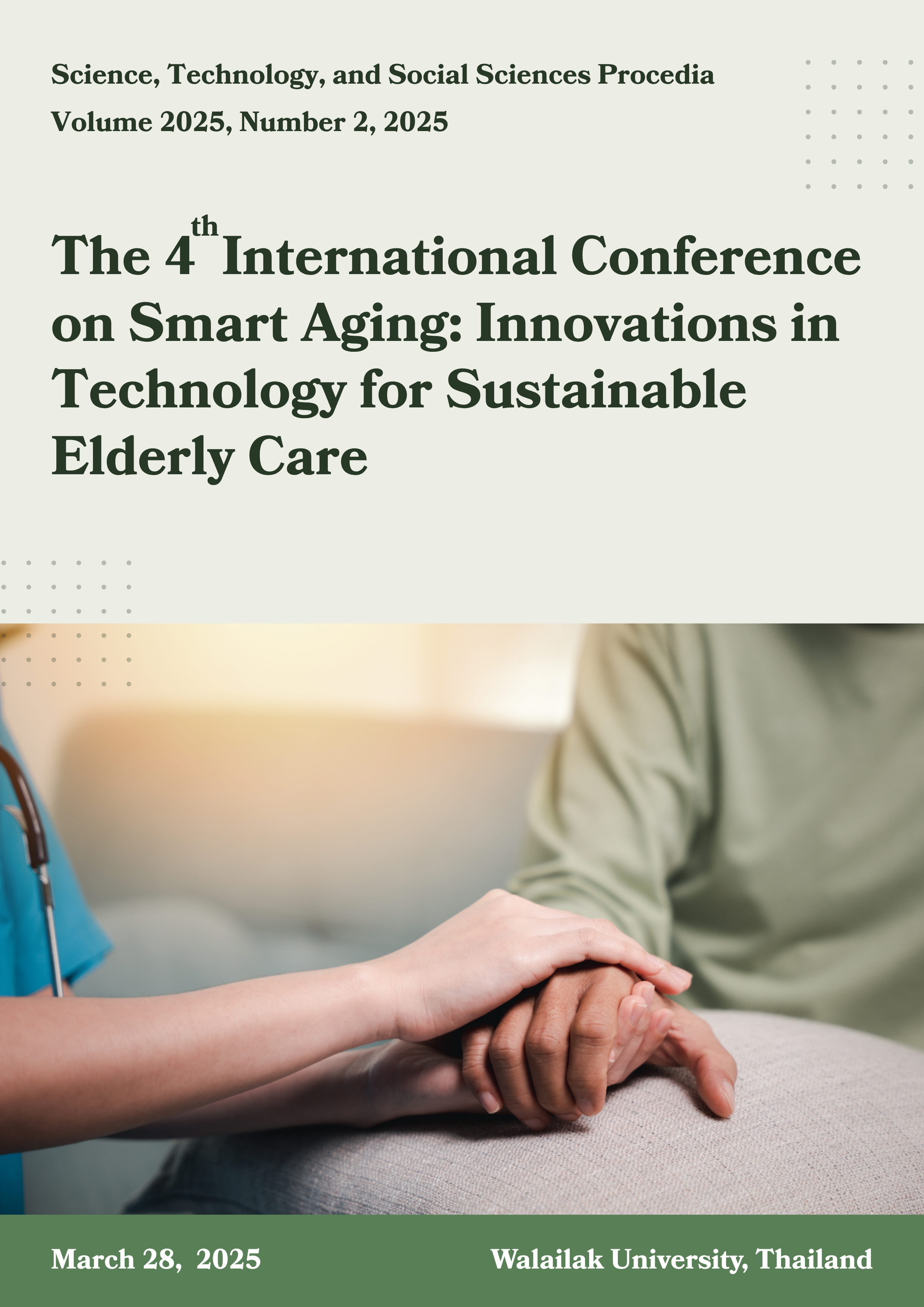Effects of Self-efficacy Development Program on Self-Care Behavior in the Elderly with Chronic Kidney Disease Stage 3 - 4, Surat Thani Province
Keywords:
Chronic kidney disease, Self-efficacy, Estimated glomerular filtration rateAbstract
This quasi-experimental research aimed to study the effects of a self-efficacy enhancement program on self-care behavior and the glomerular filtration rate (GFR) of elderly patients with chronic kidney disease (CKD) stages 3 - 4 in Surat Thani Province. The sample size was determined using the G*Power program, with 42 experimental and control group participants. The experimental group received the self-efficacy enhancement program, while the control group received standard care. The research instruments included a self-efficacy enhancement program with a content validity index (CVI) of 0.94, a self-efficacy perception assessment with a reliability of 0.91, and a self-care behavior questionnaire with a reliability of 0.83. Data were analyzed using Chi-square. The results indicated significant differences in the mean scores of self-efficacy and self-care behaviors before and after the program in the experimental group, with both measures showing statistically significant increases (p < 0.001). Additionally, when comparing the mean scores of self-efficacies, self-care behaviors, and eGFR between the experimental and control groups after program implementation, the experimental group demonstrated significantly higher mean values (p < 0.001 for self-efficacy and self-care behaviors; p < 0.05 for eGFR). This quasi-experimental study was conducted to examine changes in self-care behavior and GFR levels of the elderly persons with CKD in CKD stages 3 - 4 in Surat Thani, and to examine the impact of a self-efficacy reinforcement program for them. Sample size was computed using the G*Power program and was set at 42 participants of experimental and control groups. The intervention group was assigned the self-efficacy promotion program and the control group was given routine treatment. The research tools were as follows: the self-efficacy promoting program (CVI = 0.94) and the self-efficacy perception scale (CVI = 0.91); and the self-care behavior questionnaire (r = 0.83). The data was statistically analyzed using chi-square. Results revealed significant improvement in the mean scores of the experimental group in self-efficacy and self-care behaviors after the program, which was statistically significant (p < 0.001). Post-program comparisons between the groups also demonstrated that the experimental group had higher mean scores in self-efficacy and self-care behaviors (p < 0.001) and higher estimated glomerular filtration rate (eGFR) (p < 0.05). These findings demonstrate that the program effectively enhanced self-efficacy, knowledge, and understanding, thereby improving the confidence of elderly CKD patients in managing their health. This resulted in clinical outcomes that slowed the decline in GFR and reduced the progression to end-stage renal disease.

